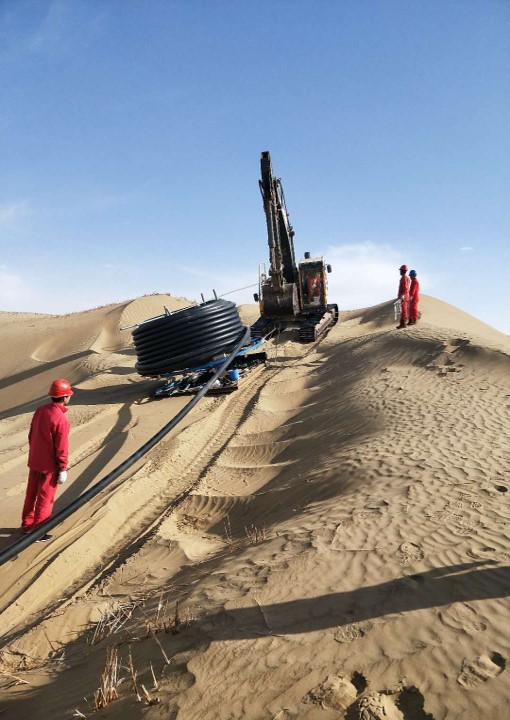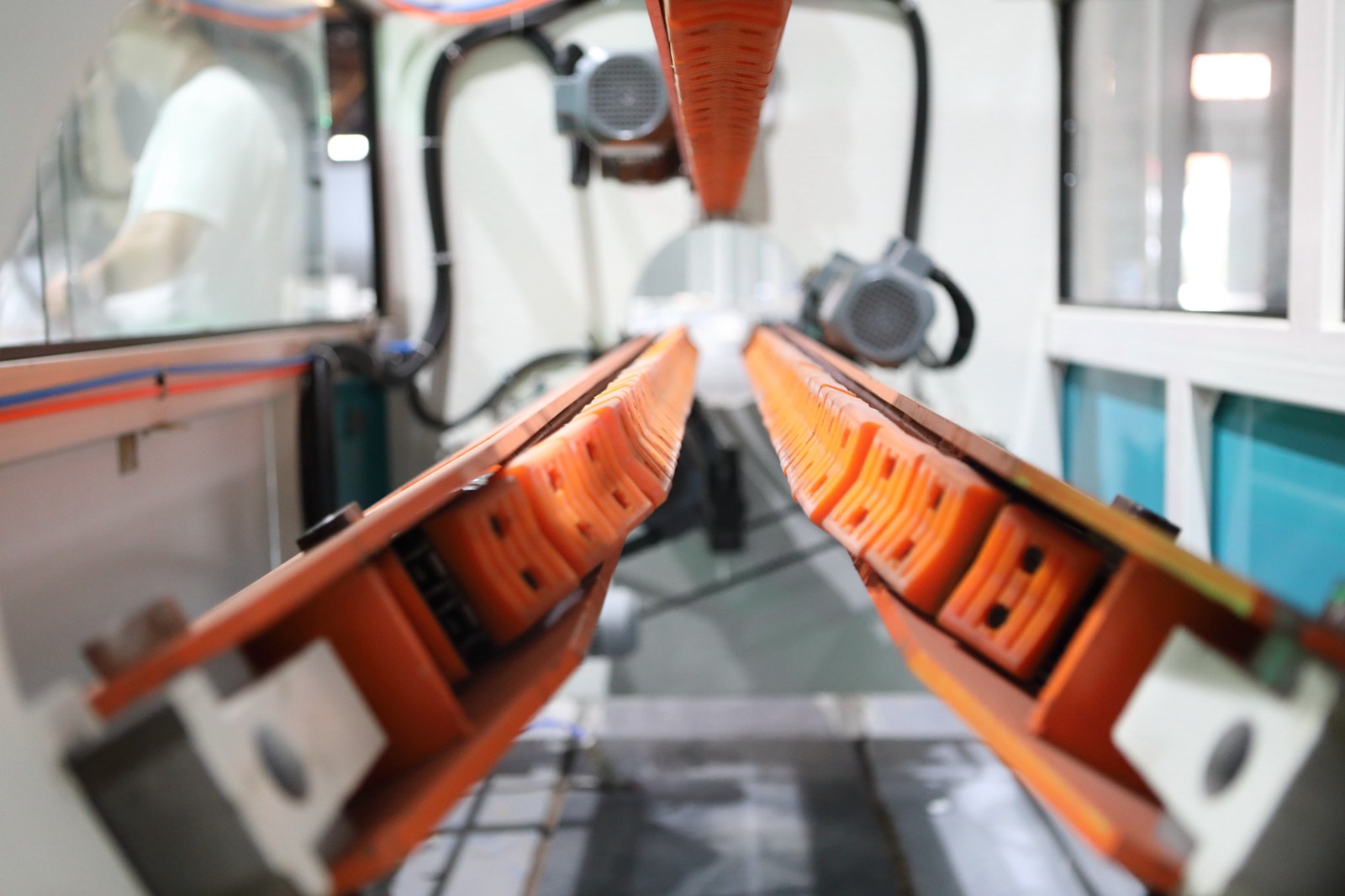Flexible polymer composite pipes are widely used in oil and gas extraction, high pressure transmission pipelines and other areas where high pressure fluid transport is required. Flexible polymer composite pipes have a variety of advantageous properties, offering high pressure resistance up to 70 MPa, high temperature resistance up to 110 degrees, high flexibility, corrosion resistance, light weight and simple laying and long distance connections. We believe that this polymer composite pipe has advantages over traditional metal pipes which have corrosion problems and plastic pipes which have pressure resistance problems.
We share 21 patents in China for our reinforced thermoplastic pipe ("RTP") products. The core products of our RTP product line mainly include flexible composite plastic high-pressure transmission pipes, reinforced ultra-high polymer continuous composite pipes, bonded continuous flexible composite pipes, high temperature resistant continuous composite pipes and high barrier gas transmission continuous composite pipes. The Company is an A-rated supplier of PetroChina in 2019 and received an A-rated credit rating from Sinopec in 2019 (Sinopec's evaluation is usually conducted every three years). The Company's RTP composite pipe product line has been widely used at home and abroad, such as Changqing oilfield, Tarim oilfield, Northwest oilfield, Sichuan and Chongqing shale gas, Shengli oilfield, Great Wall drilling, Kazakhstan oilfield, Turkmenistan, Saudi Arabia and Iraq. The company has an annual production capacity of 5000 km of flexible composite pipes and rich experience in installation.

Three representative flexible composite pipes from our RTP composite pipe product range:
a) Non-adhesive flexible composite pipe.
The non-adhesive flexible composite high-pressure transport pipe is a continuous composite pipe. The tube body consists of a layered inner liner, a reinforcement layer and an outer protective layer. Deformation between the layers may produce relative displacement of the composite tube. The inner liner and outer protection layer are usually made of extruded polymer material, and the reinforcement layer is usually made of high-strength fibres cross-wound. As a result, flexible composite pipes can be resistant to high pressure, corrosion, impact, flexibility and easy construction. The diameters of our non-adhesive flexible composite pipes generally range from DN40 to DN200, with DN40/50 pipes having a pressure resistance of up to 32MPa, DN65/75/80 pipes up to 25MPa, DN90/100/125 pipes up to 20MPa and DN150/200 pipes up to 10MPa. The length of our single non-adhesive flexible composite pipes can range from 100m to 800m. Our non-adhesive flexible composite pipes have been widely used in various industrial fields, such as oil and gas single well gathering pipeline, high pressure alcohol injection pipeline, high pressure water injection pipeline, sewage pipeline, shale gas centralized water supply pipeline, fracturing recovery pipeline, coal bed methane transmission, coal mine water supply and drainage, salt brine transmission, chemical pipeline, hot spring water transmission, etc.

b) Bonded Composite Tubes.
Bonded continuous composite pipes are an updated version of traditional non-metallic pipes in which the reinforcement layer is fused or bonded to the adjacent layer to form a composite pipe with a non-relative motion integral wall structure. The inner lining and outer protective layer of a bonded composite tube are formed by polymer extrusion, while the reinforcement layer is usually formed by polyester prepreg, aramid prepreg, glass fibre prepreg, steel cord tape and other heated bonded windings. We believe that the bonded composite process gives the composite pipe better overall stress performance, better pressure resistance ratings than traditional non-bonded flexible composite pipes and greater resistance to external pressure deformation, making it suitable for larger diameters. Our bonded composite pipes also offer better resistance to impact, stretching and gas permeability. Its integral wall construction can be used for non-metallic sleeve electrothermal welding. We believe that this non-metallic reinforced joint connection technology will completely solve the corrosion problems of traditional flexible pipe metal joints, giving a service life of over 20 years for both the joint and the pipe body. The technology we use on bonded composite pipes achieves a technological breakthrough for flexible composite pipes to large diameters and high pressures, solving the technical challenges of non-metallic joint connections. As these technologies mature commercially, we believe that this bonded non-metallic pipe can be widely used in oilfield single well gathering pipelines, gathering branch lines, coal mine water supply and drainage, etc. It is particularly suitable for transport pipelines in oil and gas field gathering systems that contain acidic substances such as CO2 and H2S.


c) Steel cord reinforced large diameter high pressure transport pipes
The inner lining layer and outer protection layer are formed by polymer extrusion compounding, and the reinforcement layer is formed by steel cord tape and other heating bonding winding. The bonding type composite process makes the overall force performance of the composite pipe better, stronger resistance to external pressure deformation, making a larger caliber; better impact resistance, tensile resistance, gas penetration resistance; integral wall structure can also be used for non-metallic sleeve electrothermal welding, the product caliber DN150-DN300, pressure level 12-16MPa. technology has solved the technical problems of non-metallic joint connection. It can be widely used in oilfield single well gathering pipeline, gathering branch line, coal mine water supply and drainage and other fields.